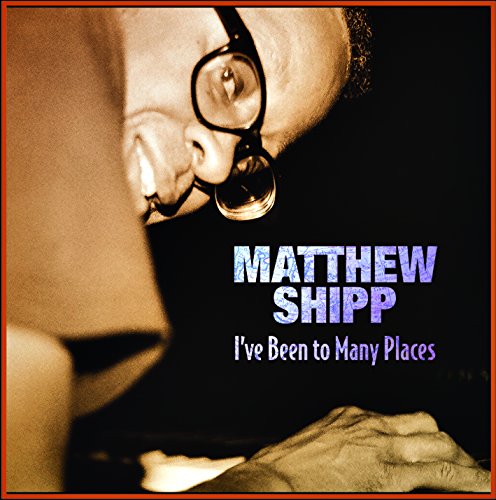
Matthew Shipp
I've Been to Many Places
Release Date: Sep 9, 2014
Genre(s): Jazz, Avant-Garde, Pop/Rock, Piano Jazz, Jazz Instrument, Modern Creative, Modern Composition, Avant-Garde Jazz
Record label: Thirsty Ear
Music Critic Score
How the Music Critic Score works
Buy I've Been to Many Places from Amazon
Album Review: I've Been to Many Places by Matthew Shipp
Great, Based on 4 Critics
Based on rating 8/10
Is there a better way to hear where a jazz musician is in his development than aurally examining the various places he's visited? For pianist/composer Matthew Shipp, the answer is "no." On I've Been to Many Places, he does exactly that over 17 cuts; he re-envisions solo work he's recorded previously with ensembles -- original and standards -- and juxtaposes it with newer compositions. Together they reveal the way Shipp's language has unfolded from a system he's had in place since the beginning, one that has added numerous dialects in its articulation. Commencing with the title track, Shipp pulls back the curtain on the complexities of his contrapuntal approach as it relates to his notions of harmony, space, time, and tonal inquiry.
Based on rating 7.8/10
For someone whose impulsive music typically focuses on "right now," Matthew Shipp has seemed pretty nostalgic as of late. Last year he released a Greatest Hits compilation, and I’ve Been to Many Places also mines his past, presenting solo piano versions of songs he previously performed with groups. Look closer, though, and it turns out both records are tied to the present.
Based on rating 7/10
Intended as a series of self-reflective solo piano studies, Matthew Shipp’s latest release, I’ve Been to Many Places, carries with it a meditative quality that finds the artist assessing his career and creative output up until this point and filtering it through a solo lens. On the title track, he alternates between quiet beauty and aggressive dissonance to illustrate both his more lyrical periods and those spent firmly entrenched in the avant-garde alongside such giants in the field as David S. Ware, William Parker and Roscoe Mitchell.
Opinion: Excellent
Romance demands warning labels on “Goddess” (Harvest), the debut album by Jillian Banks, the Los Angeles songwriter who simply calls herself Banks. “What if I said I would break your heart?/What if I said I had problems that made me mean?” she sings in “You Should Know Where I’m Coming From,” a dark piano hymn, then adds, “Maybe you can see that I just may be too crazy to love. ” In “Alibi,” surrounded by synthesizer chords and twitchy programmed percussion, she realizes, “Something so warm turned out to be/Something that I should’ve known would be the death.
'I've Been to Many Places'
is available now

